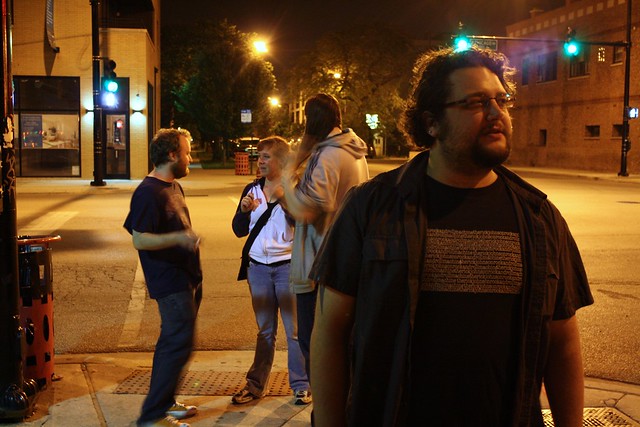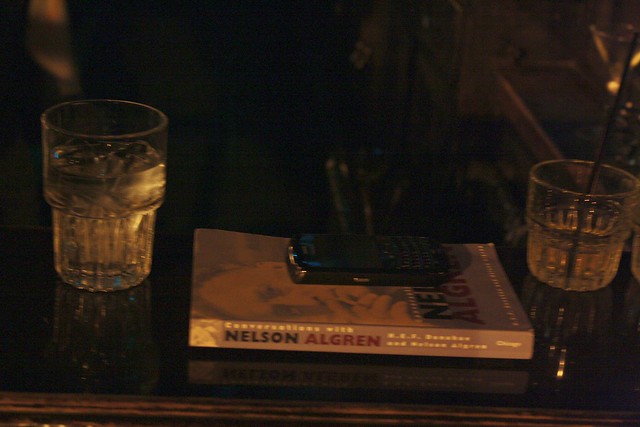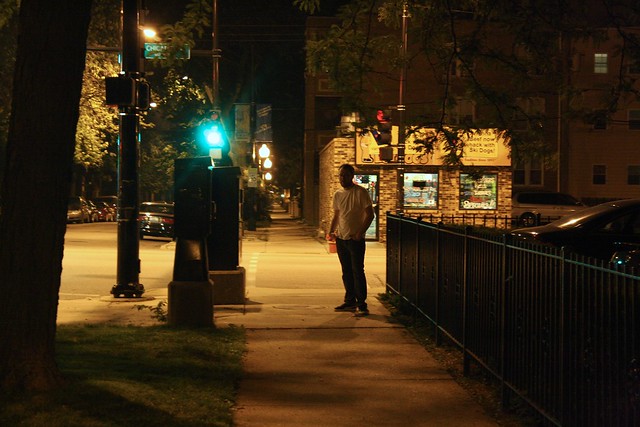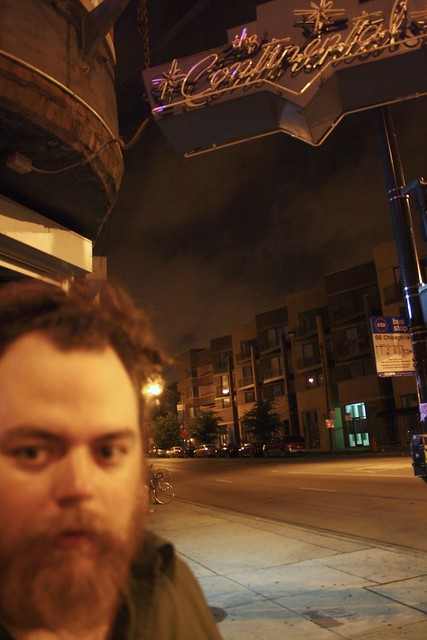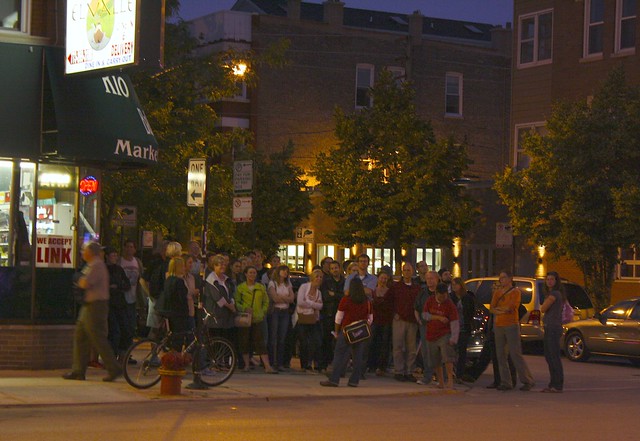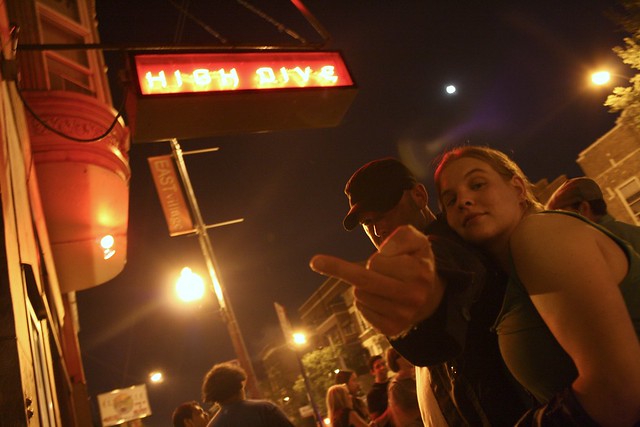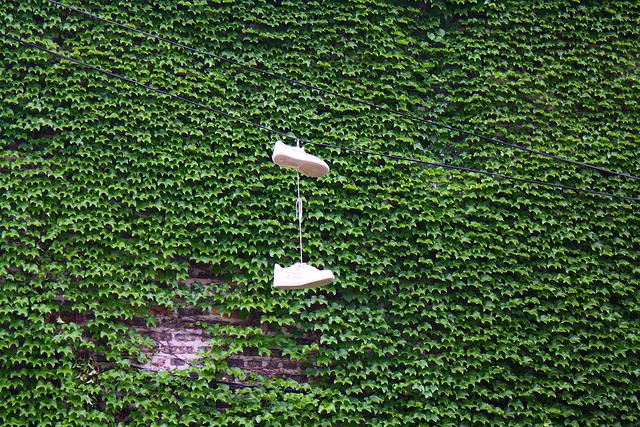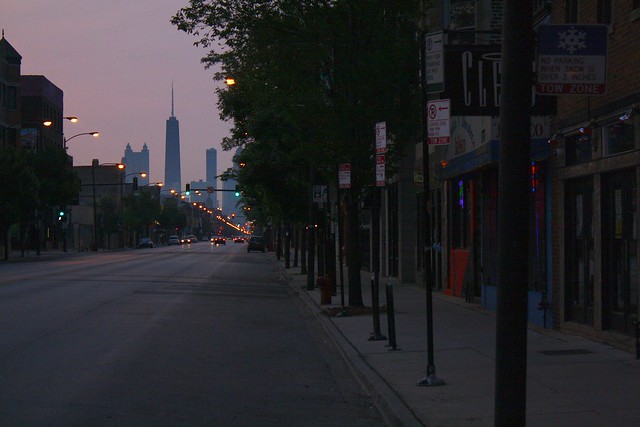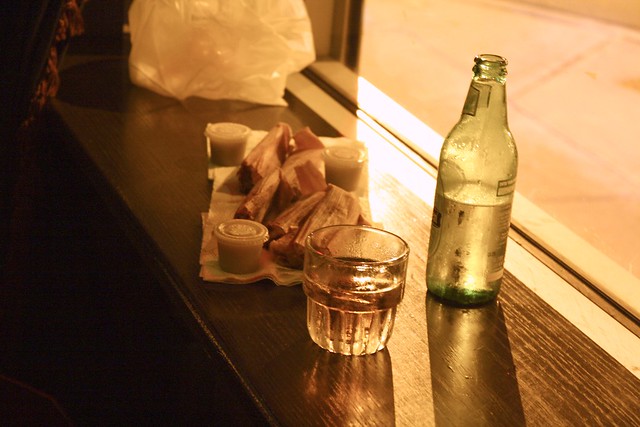
The man drew a wad of bills from his hip pocket. He'd gotten back from months of service in Iraq, he said, his full commitment, he'd cashed out his discharge settlement. He quickly had a beer and a whiskey in front of him, and he tipped the doorman 20. He tipped the bartender 20, more. Hundreds poked out from among the 20s. The man wasn't from Chicago, but from downstate, something about his discharge left him alone in the city for the night, into Tuesday morning. He stared into the distance, outside the window onto the street, took a civil sip of the Heineken. The Tamale Man's car arrived, lurched to a stop in the loading zone. The man looked toward Claudio's approaching hand cooler with a child's wide eyes. The pair trade words in Spanish, regional Spanish that appeared to take the Tamale Man by surprise. A handful of bills are exchanged, Claudio handed over tamales — puerco, pollo, queso? — in their Ziploc bag. Claudio moved into the crowded storefront, searching for familiar customers down the room, getting hellos and hugs from along the bar. On the windowsill, the veteran field-stripped his tamales, laid neatly on folded napkins as if he were working a sushi counter, as if he were making bento for a child's lunch the next day. He arranged the three kinds of dipping salsa neatly among them. He took a bite, another. He ate efficiently, quickly. He stared off toward the street again, across the street, toward the distance, past the distance. These were good tamales.
[
California Avenue and Chicago Avenue]
